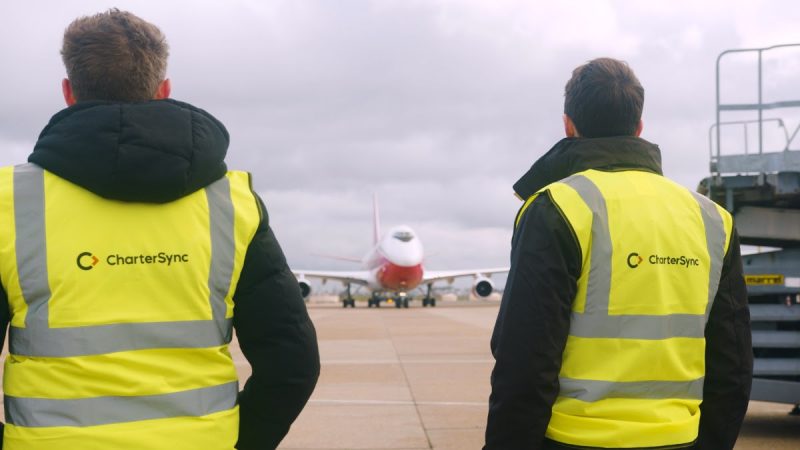CharterSync marks 3 years of disruptive digitisation in air cargo charter
London, UK: CharterSync, the multi-award-winning digital air cargo charter business, is marking threeyears of successful operations in July 2022.
Since launching in 2019, the UK-based CharterSync has carved itself a substantial share of the UK and European air cargo charter market thanks to its disruptive, technology-forward approach to air cargo charter. Today, the growing company has developed a robust business that connects hundreds of freight forwarders, airlines and operators on five continents.
Launched by two commercial pilots and flying enthusiasts—co-founders Ed Gillett and Simon Watson— CharterSync has delivered impressive year-on-year growth, with the company passing the 3,000-charter milestone earlier this year.
“CharterSync is growing fast, but we are scaling efficiently,” says Simon Watson, director and co-founder of CharterSync. “After achieving a six-figure turnover in year one of trading, our turnover has consistently risen by 84% year on year.”
In a period of unprecedented air transport disruption, CharterSync has played a significant role in transforming and streamlining the air cargo charter market through digitization. “When we launched, digital transformation was long overdue in the air cargo charter market. Up to 2019, the air cargo charter booking process was 100% manual, and laborious for both freight forwarders and operators. Freight forwarders looking for air cargo charter services had no option except to make multiple phone calls to identify the best deal for their cargoes – and even when they did make a booking, price transparency was non-existent,” comments Watson.
“With continued disruption in air travel, as we have witnessed in spring/summer 2022, digital booking is moving front and centre into the freight forwarders’ toolbox. Forwarders who never previously considered using air cargo charter are now realising the viability and cost-effectiveness of using technology in the procurement of charter options. Efficiencies driven by digitization have enabled us to minimise spiralling air cargo costs for customers, and helping to keep clients’ supply chain costs to a minimum when faced with sharp rises in fuel prices, inflationary pressures, and airports beset by congestion and ground-handling disruption.”
Much of CharterSync’s initial growth can be attributed to the demand for pharmaceutical/healthcare equipment during the COVID-19 pandemic; the company played a key role in keeping vital equipment flowing into the UK and Europe, flying more than 350 flights of PPE and test kits ex-China from 2020-22.
In parallel, the company has been diversifying into a range of time-critical sectors, including automotive, oil & gas, fast fashion and pharmaceuticals. Sectors operating just-in-time (JIT) logistics, in particular, are increasingly embracing how technology can help power their inventory management strategies, especially when they require accelerated transit times, or require 100% confidence on delivery dates for time-critical shipments.


